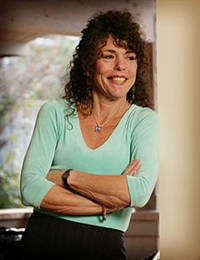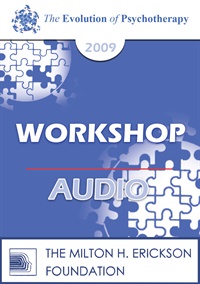EP09 Workshop 04 – One Foot Out the Door: Working with Couples on the Brink – Michele Weiner-Davis, MSW
- Average Rating:
- Not yet rated
- Topic Areas:
- Couples Therapy | Workshops | Psychotherapy | Conflict | Marriage
- Categories:
- Evolution of Psychotherapy | Evolution of Psychotherapy 2009 | Pioneers in Couples and Family Therapy
- Faculty:
- Michele Weiner-Davis, LCSW
- Duration:
- 2 Hours 11 Minutes
- Format:
- Audio Only
- Original Program Date:
- Dec 09, 2009
- License:
- Never Expires.
Description
Description: This workshop outlines practical strategies for helping couples on the brink of divorce, even when one partner already wants out. Weiner-Davis draws from her Divorce Busting model to demonstrate how hope, directive coaching, and solution-focused interventions can revive connection. She shares how working with one partner can shift dynamics, offers strategies for navigating infidelity, and focuses on honoring emotional pain while guiding couples toward concrete steps forward.
Syllabus Description: Few couples seem as unlikely to profit from therapy as those in which one partner as already decided to leave. Yet, even at this point, a therapist has an opportunity to turn the situation around. In this workshop, you will learn how to step in, even at the 11th hour, and help couples with seemingly intractable problems – hopelessness, ongoing affairs, and one spouse’s unwillingness to seek therapy, to resolve their difficulties, recommit to their marriage, and reclaim their lives.
Educational Objectives:
- To list three strategies for working with a spouse who won’t end an affair.
- To describe three techniques for doing couples therapy with one spouse.
*Sessions may be edited for content and to preserve confidentiality*
Credits
Handouts
| Timestamped Transcript (1.4 MB) | 36 Pages | Available after Purchase |
| Ericksonian Learning Snapshot (247.6 KB) | 2 Pages | Available after Purchase |
Faculty

Michele Weiner-Davis, LCSW Related Seminars and Products
Michele Weiner-Davis, LCSW is the Founder of The Divorce Busting Center in Boulder, Colorado. She is a popular TEDx speaker and the author of eight books including, Healing From Infidelity, and the bestselling Divorce Busting and The Sex-Starved Marriage. She is the recipient of several prestigious awards including the Outstanding Contribution to Marriage and Family Therapy Award from AAMFT.


